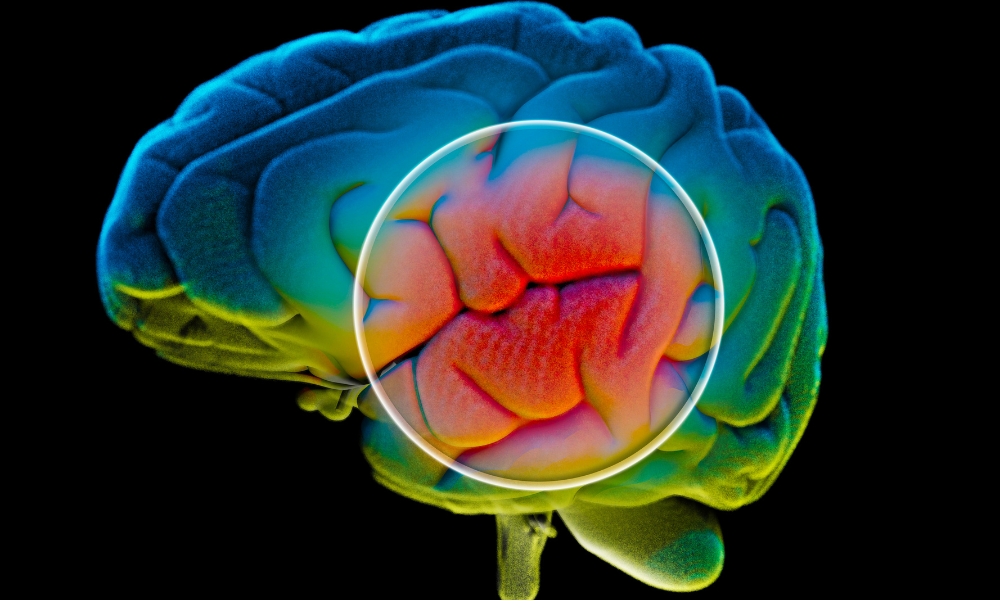Have you ever thought about what makes us view money the way we do? You may be surprised to know that neurotransmission is a major player in our financial happiness. Neurotransmission is our brain’s messenger system, where tiny chemicals send messages between nerve cells to help our brain and body communicate and work together. Neurotransmission impacts our finances by influencing decision-making, risk assessment, and impulse control. Imbalances in neurotransmitters can lead to impulsive spending, poor investment choices, and difficulty in managing financial goals.
Dopamine and serotonin are the two neurotransmitters with the strongest influence on our money. Let’s take a deeper look at what dopamine and serotonin are and how they affect our money. We will also look at how they can be used to help us make sound financial decisions.
What is Dopamine?
Dopamine is a major neurotransmitter responsible for reward and pleasure. It serves as a behavioral motivator. Dopamine is released when you experience something pleasurable and rewarding, such as earning money or eating a delicious meal. This dopamine surge makes us feel good and encourages us to repeat similar activities.
How Does Dopamine Influence Money?
When it comes to our money, dopamine can influence our behavior in various ways. For instance, the anticipation of earning money, such as receiving a paycheck or anticipating a bonus, can trigger dopamine release in our brains. This can create a sense of excitement and motivation to work harder or achieve financial goals.
On the flip side, dopamine can also play a role in impulsive spending behavior. When we make impulsive purchases, our brain releases dopamine as a response to the pleasure of acquiring something new. This dopamine release can reinforce the behavior, leading to a cycle of impulsive spending and temporary satisfaction.
Furthermore, studies have shown that individuals with lower dopamine levels may have difficulty with financial decision-making. Dopamine is involved in our brain’s reward prediction system, which helps us evaluate the potential benefits and risks of a particular financial choice. Lower dopamine levels can result in reduced motivation to pursue higher financial goals or make sound financial decisions.
The Problem with Dopamine and Money
Dopamine does not always lead to good financial decisions. It can often be a source of temptation and lead to financial irresponsibility. People who respond strongly to the release of dopamine, either as a result of their natural wiring or because of an addiction, are more likely to take risks with their money in pursuit of a reward. People can easily become addicted to their own reward system and begin to make decisions that are not in their financial best interests. They may feel compelled to overspend or take unreasonable risks in search of another dopamine hit. The allure of making a lot of money with little effort can be especially enticing to those with an addictive personality. They feel compelled to take risks with their money to experience the surge of dopamine that comes with a successful investment or a big win at the casino. This is especially risky for people who are already in a precarious financial situation.
How Can We Leverage Dopamine for Good Financial Decisions?
The key to leveraging dopamine for good financial decisions is setting small, achievable goals and rewarding yourself when you reach them. This can help to prevent excessive risk-taking and promote savings. Setting small financial objectives and rewarding yourself with something you love when you achieve them can help you build a positive feedback loop. This will keep you financially motivated and on track.
For example, if you set a goal to save a certain amount of money this month, reward yourself with a massage or night out when you reach it. This dopamine hit can reinforce the positive behavior and motivate you to keep going.
What Is Serotonin?
Serotonin is made up of several different chemicals that are responsible for the production of neurotransmitters in the body. These are known as amino acids. Tryptophan, for example, is one of the most common amino acids involved in the production of serotonin.
Serotonin regulates mood, sleep, and hunger, as well as other bodily functions such as sexual desire, bone health, and cardiovascular health. The brain, blood platelets, and the digestive system all contain serotonin.
How Does Serotonin Affect Our Money?
Serotonin levels can have a direct influence on our financial decisions, whether it be through spending or saving. Its main role is to stabilize mood and sleep. When our mood is low, we may be more likely to make bad financial decisions. We might try to spend money to make ourselves feel better. When our sleep is inadequate, our cognitive function declines, leading to money choices that we haven’t thought through.
Serotonin can also assist in preventing us from making decisions we may later regret. It is linked to impulse control. This comes in handy when we are tempted to buy something new. As a consequence, it can assist us in avoiding overpaying.
Adequate serotonin levels are also regarded to have a good influence on our ability to save money. This is due to its role in providing feelings of calmness and satisfaction. By having higher levels of serotonin, we are more apt to save money, as it can keep us from acting rashly.
How Can We Leverage Serotonin for Good Financial Decisions?
Leveraging serotonin for good financial decisions involves recognizing the significant link between our emotional well-being and rational thinking. When our serotonin levels are in balance, we are more likely to approach financial decisions with a clear and rational mindset. To harness this, focus on activities that naturally boost serotonin production. Frequent exercise, such as running or yoga, has been demonstrated to increase serotonin levels, resulting in better mood and cognitive performance. Additionally, maintaining a balanced diet rich in nutrients like tryptophan (a precursor to serotonin) and omega-3 fatty acids can positively influence serotonin production.
Developing social relationships can also help with serotonin release. Participating in meaningful contact with friends and family, as well as participating in group activities, can promote the production of this neurotransmitter, fostering a positive perspective and assisting in making sensible financial decisions. By proactively managing stress through relaxation techniques like meditation or deep breathing, individuals can further ensure stable serotonin levels, reducing the likelihood of emotional impulsivity that can lead to detrimental financial decisions.
Closing Thoughts
Understanding the impact of dopamine and serotonin on our financial behaviors can help us become more aware of our habits and make informed decisions. By recognizing the role these neurotransmitters play in our relationship with money, we can strive for a balance between enjoying the rewards of our financial achievements and maintaining responsible spending habits. Before we close, here is a list of ways that you can regulate your dopamine and serotonin for better financial decision-making:
Eat protein-rich foods: Amino acids are critical for dopamine and serotonin production. Foods such as turkey, beef, eggs, dairy, soy, and legumes are rich in tyrosine which makes dopamine. Foods that are high in tryptophan include turkey, chicken, eggs, cheese, nuts, and seeds aid in serotonin production.
Consume probiotics: Certain species of bacteria in the gut can produce dopamine and regulate serotonin. In fact, most of your 5HT (serotonin) receptors are in your gut! A healthy gut biome is vital for neurotransmission. Foods such as yogurt, kefir, kimchi, and sauerkraut are rich in probiotics.
Exercise regularly: Exercise increases the production of dopamine and serotonin in the brain and body and can help regulate its levels.
Get enough sleep: Sleep deprivation can cause a significant reduction in dopamine and serotonin. Regulating these neurotransmitters can help you get quality sleep while quality sleep can help regulate these neurotransmitters. They go hand-in-hand.











